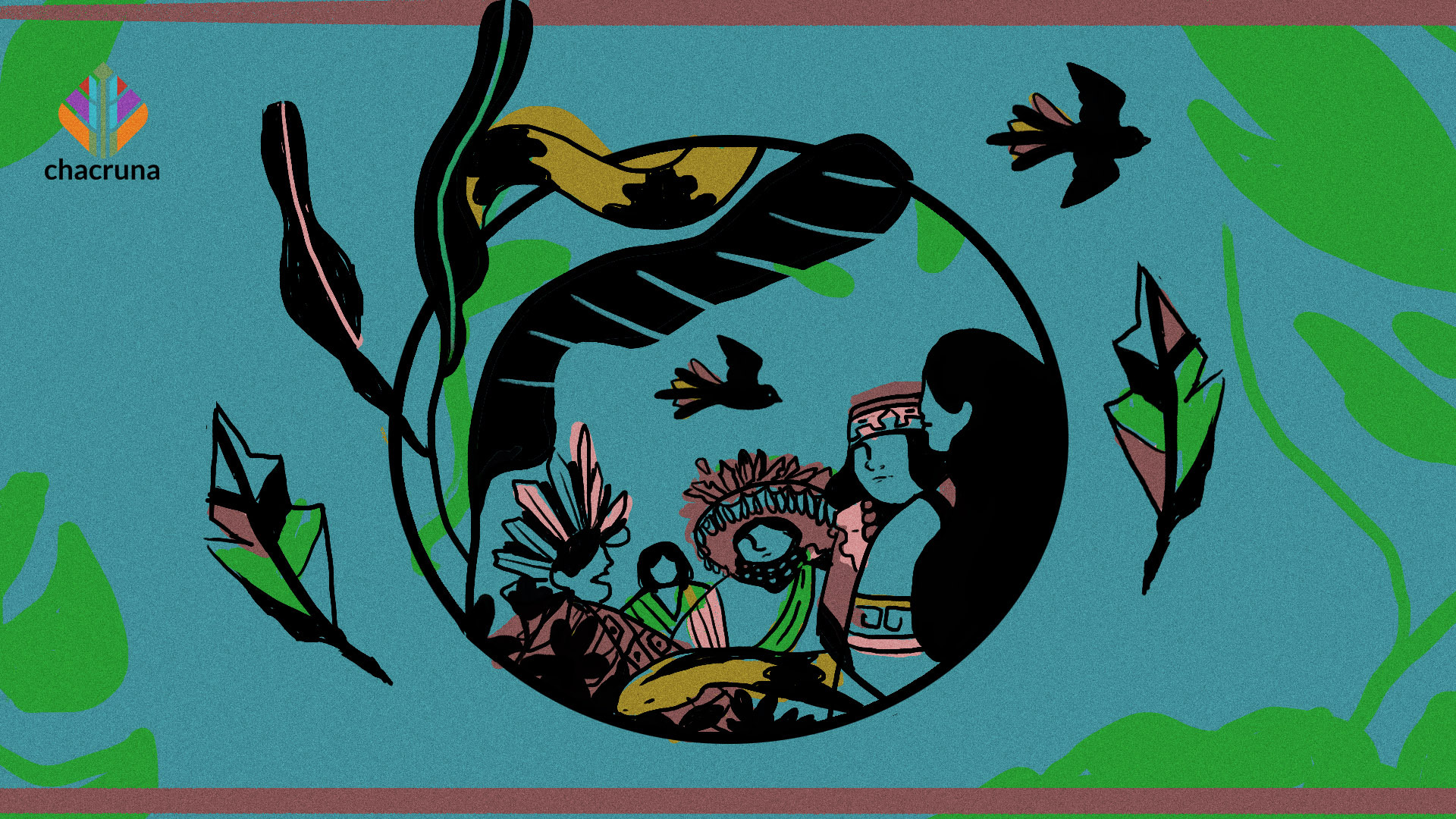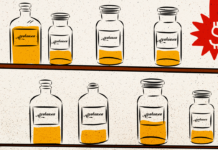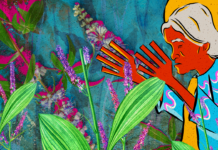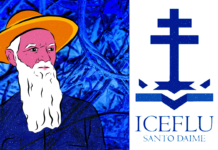- Course: The Science of Psychedelic Healing - March 25, 2025
- Course: Ayahuasca Healing, Science and Indigenous Knowledge - March 25, 2025
- Hollers & Horizons: Psychedelics in Appalachia - February 26, 2025
Between September 25 and 29, 2022, the Fourth Indigenous Ayahuasca Conference took place, hosted by the Yorenka Tasorentsi Institute (IYT) at its headquarters in the municipality of Marechal Thaumaturgo, on the banks of the Juruá River, in the State of Acre, Brazil. It was organized by the IYT and the Organization of Indigenous Peoples of the Juruá River (OPIRJ), and was self-financed, with resources raised by the institute itself and partners who help fund the programs of the Indigenous peoples.
Between the third and fourth conferences, there was considerable contact between the Indigenous peoples and the conference partners, which resulted in the participation of representatives of 35 Indigenous peoples from Brazil and other countries such as Colombia, Ecuador, Peru, Mexico, and Canada, as well as Indigenous organizations, institutional partners, researchers, and other non-Indigenous guests. The peoples present were the Apolima-Arara; Huni Kuĩ; Jaminawa-Arara; Kuntanawa; Nawa; Noke Koi; Nukini; Puyanawa; Shanenawa; Shawãdawa; Yawanawá; Apurinã (Pupykary); Manchineri; Ashaninka; the Ashaninka of the Upper Perene; the Yanesha of Puerto Yunnako; the Nomatsiguenka, Ashaninka, and the Machiguenga from the Apurimac-Cusco River; the Yaminawa; Marubo; Yepá Mahsã-Tukano; Anishinaabe; Arhuaco; Tubú Hʉmmʉrimasa; Inga/the Union of Yagecero Indigenous Physicians of the Colombian Amazon (UMIYAC); the Kichwa de Sarayaku; Kofan; Jiaki; Wixárika; Potiguara; Omágua Kambeba; Shipibo-Konibo; Yanomami; Guarani Mbyá; and the Siona. There were some 389 participants, with 244 Indigenous and 145 non-Indigenous participants.
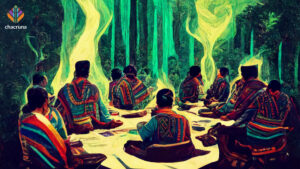
The topics discussed detailed issues that have been debated since the first conference, in addition to other interesting issues that were raised during the event. Among the main topics covered were:
- the protection of the land and life in the Amazon and the relationship of the Amazon to the world;
- the challenges faced by current generations to maintain the culture of their peoples;
- the ethics that legitimize, or not, the ways of sharing Indigenous medicines;
- legal aspects and responsibility for the commercialization and granting of patents;
- the new action fronts that require close contact between spiritual leaders;
- the importance of sacred spaces for spiritual practices; and the valuing of exchanges and discussion of experiences
The experiences presented by each of the Indigenous peoples pointed to a variety of ways to deal with diverse and often common issues, demonstrating the importance of this space for dialogue and exchange.
As a result of intense discussions and reflections, the “Letter of the Fourth Indigenous Ayahuasca Conference” presents positions and warnings, indicates concerns and priorities, and, above all, calls for respectful dialogue.
In addition to written material, visual and audiovisual records were also made, with the aim of creating reference materials for the study and dissemination of this theme as one of the fundamental points on the agenda of Indigenous rights.
The Fifth Indigenous Ayahuasca Conference is scheduled for 2024.
We invite you to read the “Letter of the Fourth Indigenous Ayahuasca Conference,” approved by the final plenary held on September 29, 2022.
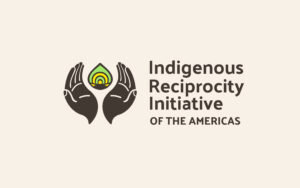
Discover the Indigenous Reciprocity Initiative of the Americas
Letter of the Fourth Indigenous Ayahuasca Conference
We, the following Indigenous peoples: the Apolima-Arara; Huni Kuĩ; Jaminawa-Arara; Kuntanawa; Nawa; Noke Koi; Nukini; Puyanawa; Shanenawa; Shawãdawa; Yawanawa; Apurinã (Pupykary); Manchineri; Ashaninka; the Ashaninka of the Upper Perene; the Yanesha of Puerto Yunnako; the Nomatsiguenka, Ashaninka and Machiguenga of the Apurimac-Cusco River; Yaminawa; Marubo; Yepá Mahsã-Tukano; Anishinaabe; Arhuaco; Tubu Hʉmmrimasa; Inga/the Union of Yagecero Indigenous Physicians of the Colombian Amazon (UMIYAC); the Kichwa of Sarayaku; Kofan; Jiaki; Wixárika; Potiguara; Omagua Kambeba; Shipibo-Konibo; Yanomami; Guarani Mbyá; and the Siona, gathered at the Fourth Indigenous Ayahuasca Conference, held from September 25 to 29, 2022, at the Yorenka Tasorentsi Institute, in the municipality of Marechal Thaumaturgo, Acre, Brazil, in coordination with the Yorenka Tasorentsi Institute (IYT), and the Organization of the Indigenous Peoples of the Juruá River (OPIRJ), after intense discussions, state the following:
*We affirm that ayahuasca is a vital conductor of life, an ancestral form of knowledge that has resisted colonization and remains alive in the culture of various Indigenous peoples, the guardians of ayahuasca from time immemorial. We stress that Indigenous teachings are an inspiration for the changes necessary to protect life on the planet and to make a revision of the very idea of humanity.
*We declare recognition and respect for all our territories: physical, material, and immaterial; the demarcation of Indigenous lands; and respect for the knowledge that sustains them.
We declare recognition and respect for all our territories: physical, material, and immaterial; the demarcation of Indigenous lands; and respect for the knowledge that sustains them.
*We emphasize that the spirituality of Indigenous peoples is not limited to healing the body and mind of individuals but is, rather, a vehicle of healing, protection, and communication with the territories and all beings who inhabit them, our ancestors, their stories, songs, and dreams. We thus take care of beings in all their forms of life.
*We think about the challenges and opportunities of the present moment in which we live in the world. We draw attention to the role of youth in strengthening knowledge of Indigenous medicines with responsibility and creativity. We regret that young people may not have the same intimate relationship that our ancestors had; we know that we have deep roots in collective healing, and we pay tribute to our ancestral medicines for their healing power, teaching, and communication with the territories.
*Violence against women is a symptom of colonial oppression in our territories. At this meeting, marked by the strength of their presence, we assume a commitment to lovingly care for and defend the integrity of our children, youth, mothers, and grandmothers, taking a stand against any violation of their rights. We are also committed to caring for those who are older: our elders.
*We must assess the impacts on the cultural, political, and ecological dynamics of our communities, arising from the commercialization of biodiversity and the growing popularity of ayahuasca and associated medicines among non-Indigenous people, now and in the future. We are aware of the importance of reforestation and the conservation of Indigenous medicines.
We must assess the impacts on the cultural, political, and ecological dynamics of our communities, arising from the commercialization of biodiversity and the growing popularity of ayahuasca and associated medicines among non-Indigenous people, now and in the future.
*We will promote discussions between Indigenous peoples with the aim of exchanging experiences and guidelines on the ethics of care and diet, food, respect for principles, conservation of our different ways of life, ecosystem management, strengthening collective rights, and the struggle to end violence against our cultures.
*We will promote exchanges with Indigenous peoples who seek ayahuasca as a means of reconnecting with their own spiritualities and medicines, with guidance and teaching from experienced Indigenous spiritual leaders. Despite territorial differences and distance, ayahuasca speaks the language of each people and revitalizes each culture.
*We will promote exchanges between the Indigenous spaces and organizations that were present at this conference in order to discover knowledge about each culture and develop joint actions. We will bring together the experiences of existing Indigenous institutes and centers to discuss our practices and challenges, aligned with the internal considerations of each people or community on the ways of using medicines.
*We will promote new meetings on the use of Indigenous medicines.
*We are concerned about the misuse of our names, words, and items of traditional clothing and demand compliance with the legislation on cultural appropriation and the development of new instruments for intellectual protection and image rights.
*We propose a code of ethics to suggest legitimate ways to share Indigenous medicines with the non-Indigenous world, according to the teachings of the elders, combined with diplomatic work in the name of justice and the well-being of all humanity.
*We affirm that the spirituality of Indigenous peoples is not for sale but can be shared with a profound ethics aligned with living together, teachings, and ways of relating to the territories from where our knowledge comes. And, when this happens, the laws in force must be respected.
*We will continue the process of creating the Council of Indigenous Spiritual Leaders in order to improve what has already been done. One of its premises is to be a guiding and mediating link with the non-Indigenous world, so as to increase and spread the message of peace and protection of life, with a commitment to guaranteeing respect for Indigenous knowledge, science, and medicine.
We have identified the need for transparent contracts and greater attention to commercial activities involving traditional Indigenous medicines.
*We have identified the need for transparent contracts and greater attention to commercial activities involving traditional Indigenous medicines.
*We note the importance of incorporating new social technologies for project management to approve the effective use of resources and financing of projects in communities.
*We emphasize the importance of having specific sacred spaces for ceremonies, where spiritual cleansing has previously been carried out, as this will strengthen cultural and spiritual practices in harmony with the beings of the place, both in villages and in urban Indigenous communities.
*We are inspired by experiences of creating spaces for the integral training of young people who can act in cultural, economic, political, and spiritual processes, as well as learn about medicines. We will prepare children to defend territories and encourage the learning of mother tongues and other cultural elements of our peoples, and teach them to think critically and creatively about their connection with their ancestors.
*We consider that the protection of plants and animals is linked to the food sovereignty of our peoples, always integrated with school and other community actions, according to the beliefs of each community.
*We will seek a dialogue between traditional Indigenous medicines and non-Indigenous medicine so that they are recognized, valued, and integrated into public systems for physical, emotional, and mental health.
*We will seek ways to protect the abundant riches of our territories, becoming united as secure and autonomous fraternal peoples, allying ourselves with non-Indigenous partners who work in true dialogue with our intentions to live well. We see this union as a way of overcoming crimes against the memory and cultures of our peoples.
*We are attentive to the context of the borders between different countries that include our territories in the area of the Amazon and to the challenges of our links as fraternal peoples, as we believe our territories have no borders. Tropical forests are life systems that also extend to other territories, and the commitment to their balance involves making our original knowledge visible. We will face local situations of diverse threats to protect the land and the forest, and we need support to access the technologies necessary to record and monitor invasions of our territories.
*We underline the need to forge alliances between the peoples in this border area and to carry out the ethnozoning of all Indigenous lands.
*We affirm that the separation of knowledge into areas and the differentiation between molecules, substances, plants, and products does not correspond to Indigenous thinking about the spirit and life of the beings that heal us. We warn of the dangers and serious consequences of the death of our territories, the misuse of our medicines, and cultural appropriation. We emphasize the importance of prior and informed consultation, the violence of the extractivism of our knowledge, and biopiracy, and we take a stand against the threats of exploitation and the exclusion of our peoples.
We warn that threats to life and territories do not only come from loggers, miners, and drug trafficking, as they can also be camouflaged in beautiful narratives by non-governmental organizations, companies, and missionaries.
*We warn that threats to life and territories do not only come from loggers, miners, and drug trafficking, as they can also be camouflaged in beautiful narratives by non-governmental organizations, companies, and missionaries. Our leaders and sages must therefore be protected.
*We call on Indigenous and non-Indigenous technicians and academics to fight misinformation, lack of awareness in institutions, cultural appropriation, and the inappropriate use of our medicines. We call on them to be bridges for the revision of old paradigms and the creation of new models, providing legal advice and the development of instruments, public policies, and institutional dialogue based on our demands, with respect to cultural identities, Indigenous sciences, and respect for Indigenous research and teaching methods.
*We will confront the criminalization of ayahuasca in its use by Indigenous spiritual leaders outside their territories of origin, as we are all one family.
*We demand the immediate release of people arrested for transporting and using ayahuasca in countries such as Mexico and Spain, in cases where our leaders are being denounced as criminals and traffickers of illicit substances. We support the autonomy of native peoples to deal with their traditional medicines.
*We do not accept patent registrations for ayahuasca and other Indigenous medicines and forbid any appropriation for the purpose of developing commercial products that disregard our rights related to the associated traditional knowledge. We are committed to preventing these illegitimate patents.
Note: The term ayahuasca does not replace the terminologies presented by each participating people, such as Kamarãpi, Uni, Huni, Dispãnī hew, Tsĩbu, Yage, Gaapi, Caapi, and Hayakwaska. However, since the first Conference, it has been agreed to use this term in a generic way, including all other nomenclatures.
Yorenka Tasorentsi Institute, Marshal Thaumaturgo-Acre, Brazil, September 2022.
This letter was translated from Portuguese to English by John Milton. You can find the original Portuguese version here.
Past Declarations:
Declaration of the 1st Brazilian Indigenous Conference on Ayahuasca
Declaration of the 2nd Brazilian Indigenous Conference on Ayahuasca
Declaration of the 3rd Brazilian Indigenous Conference on Ayahuasca
Art by Karina Alvarez.
Take a minute to browse our stock:
Did you enjoy reading this article?
Please support Chacruna's work by donating to us. We are an independent organization and we offer free education and advocacy for psychedelic plant medicines. We are a team of dedicated volunteers!
Can you help Chacruna advance cultural understanding around these substances?


